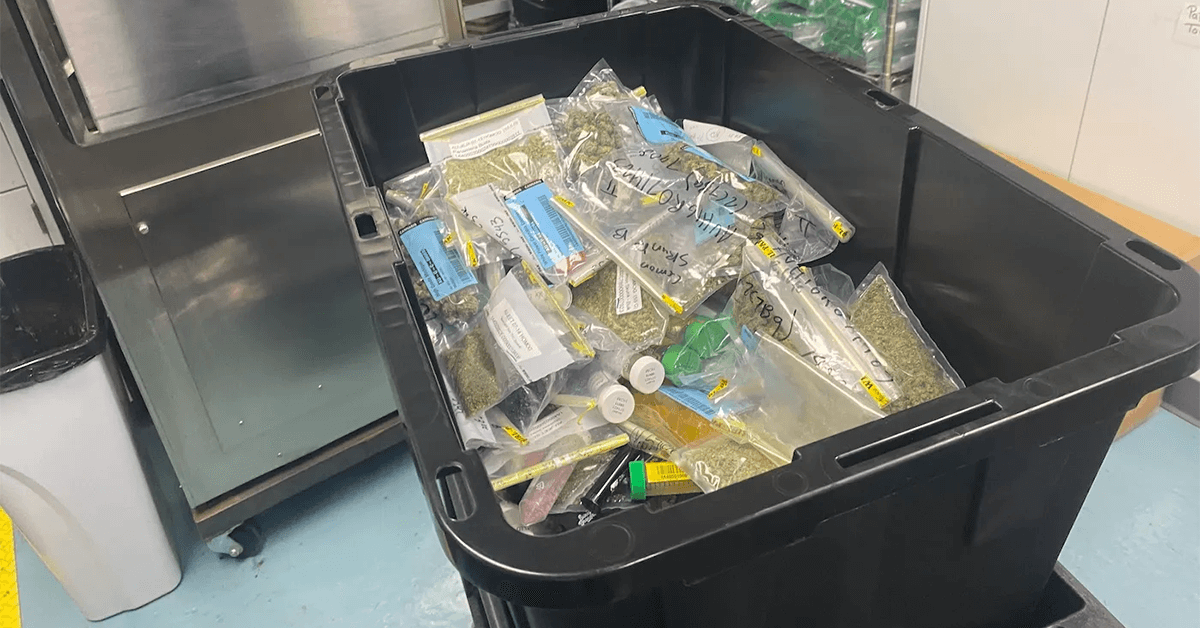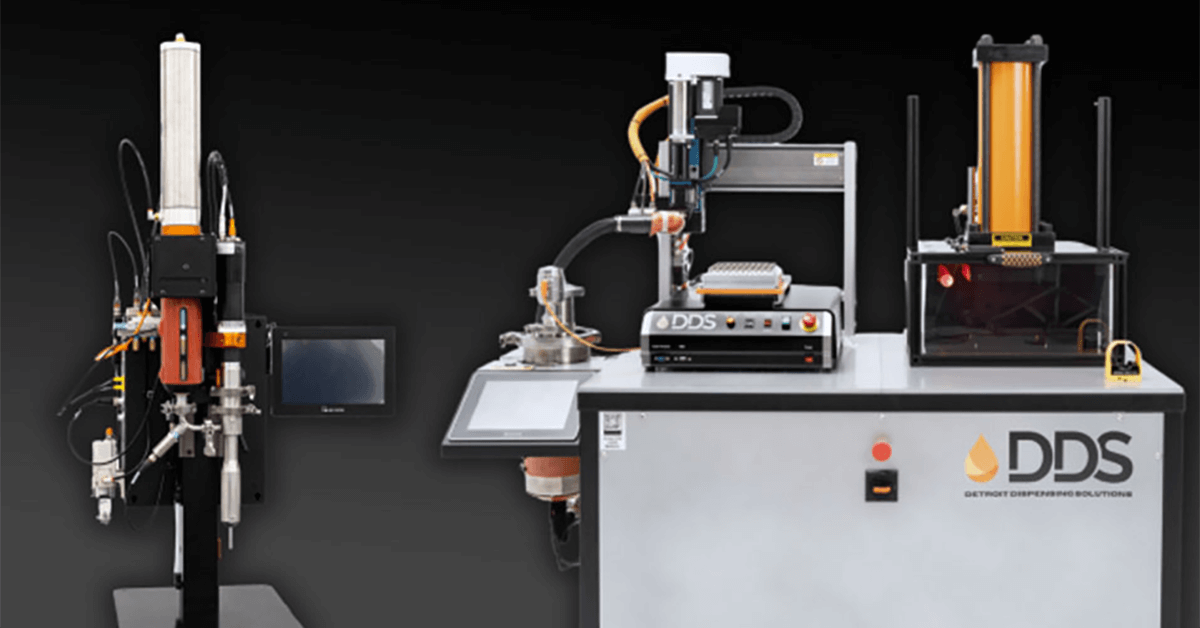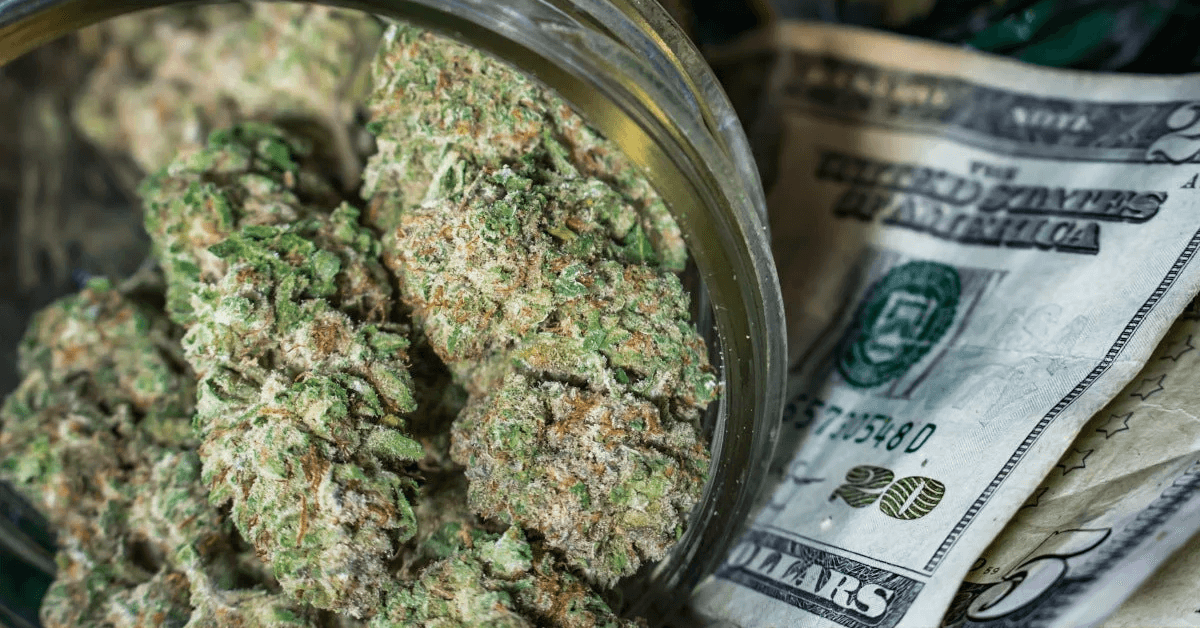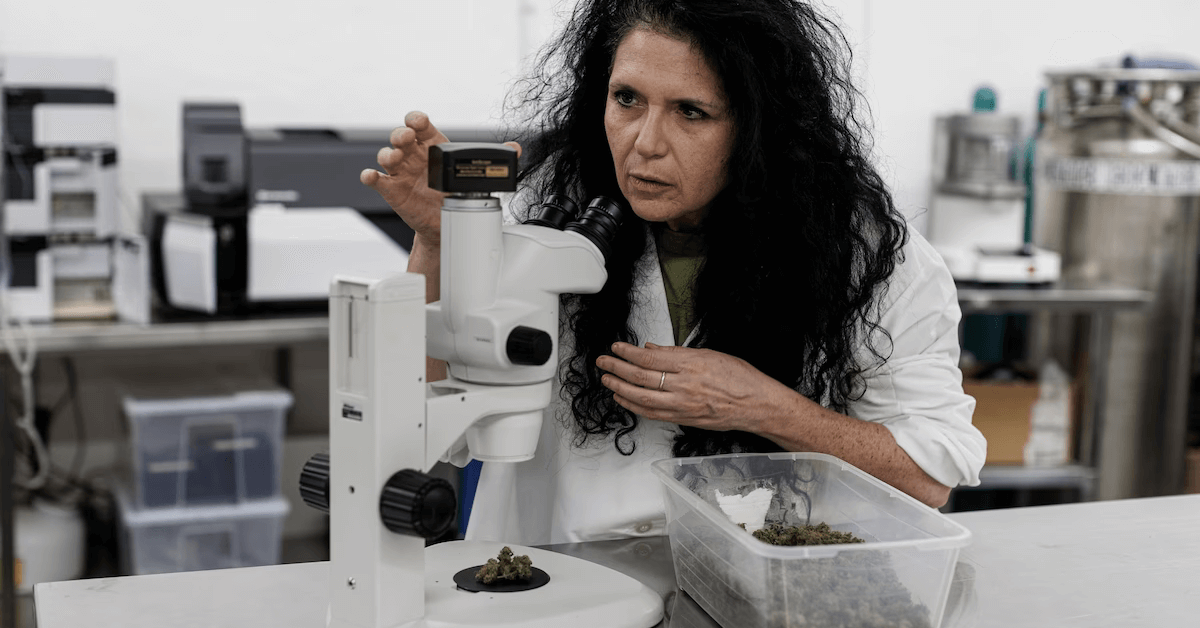Navigating the Complexities of Cannabis Testing and Labeling in Michigan

Legal Battle Ensues as Cannabis Firm Alleges Non-Payment by Michigan Clinic

A cannabis-focused laboratory and consulting company has filed a lawsuit against a Michigan-based clinic, alleging the clinic has failed to pay over $100,000 in fees for services rendered. The legal action, initiated in a Colorado federal court, centers on a contract between North Star Scientific Solutions LLC, the plaintiff, and Michigan Health Clinics PC, the defendant.
According to the filed complaint, Michigan Health Clinics engaged North Star Scientific Solutions to assist in creating a comprehensive project plan aimed at securing a cannabis testing license from the state of Michigan. The clinic was successful in obtaining this license in July. However, it is reported that it ceased payments to North Star several months prior, neglecting its financial obligations under the agreement signed in June 2021 and its subsequent amendments.
As of the lawsuit's filing, North Star claims the clinic owes a total of $101,441.22, which includes the principal amount for services provided and a 5% late fee, as stipulated in their contract. The consulting firm asserts that despite fulfilling its part of the agreement, leading to the clinic acquiring its cannabis testing license, it has not received compensation for its work.
The dispute reportedly began to escalate toward the end of 2022 when the clinic's payments became sporadic, culminating in a final payment of $50,000 in February 2023. This payment was intended to settle months of overdue fees. Despite assurances from the clinic that payments would stabilize once the license was secured, North Star alleges that no further payments were made.
In an attempt to resolve the issue, North Star engaged in communication with David Stockman, identified as an agent for the clinic, in October. The firm expressed its dissatisfaction with the clinic's failure to meet its financial commitments, including a specific instance where the clinic did not pay an agreed-upon sum of $25,000. Despite these efforts and a demand letter sent by North Star's legal representation, the Vethan Law Firm, in December, claiming $97,000 was owed, the clinic has not made any payments or responded to the demands.
As of now, the clinic has not provided a response to inquiries regarding the lawsuit. The legal representation for Michigan Health Clinics in this matter has not been disclosed. North Star is represented by Charles M.R. Vethan of the Vethan Law Firm in this ongoing legal dispute, officially titled North Star Scientific Solutions LLC v. Michigan Health Clinics PC, case number 1:24-cv-00541, in the U.S. District Court for the District of Colorado.
From Auto Industry to Cannabis Innovator: The Story of Detroit Dispensing Solutions

In the dynamic sphere of cannabis technology, Detroit Dispensing Solutions (DDS) has emerged as a formidable innovator, revolutionizing the way concentrates are dispensed. Founded in 2020 by Chris Joseph, a seasoned professional from the automotive industry, DDS leverages Joseph's extensive experience in mechanical and electrical engineering to spearhead advancements in cannabis vaporizer dispensing technologies. The latest breakthrough from DDS, the CDS-1000 Automated Concentrate Dispensing System, exemplifies the company's commitment to pushing the boundaries of industry norms.
Chris Joseph's path to innovation was paved during his tenure in the automotive sector, where he excelled in engineering roles, from hands-on circuit board assembly to leading engineering departments. His transition into the cannabis industry was driven by a desire to address the inadequacies of existing dispensing solutions with his industrial machinery expertise. This led to the creation of DDS in the confines of his garage during the challenging times of the COVID-19 pandemic. Working closely with a licensed cannabis facility for 18 months, DDS developed the CFM-1800 Automated Cartridge Filling and Capping Machine, a machine that quickly set new standards for efficiency and reliability in high-volume vape cartridge production.
The CDS-1000, alongside its predecessor, the CFM-1800, represents DDS's response to the unique demands of the cannabis industry. Initially tailored for Michigan's market, these machines have gained widespread acceptance, now processing over 70% of vape cartridges in the state and expanding their presence nationwide. DDS's move to a larger, 25,000-square-foot facility in Troy was a calculated risk that paid off, enabling the company to scale its operations and foster a collaborative environment that blends automotive precision with cannabis expertise.
The CFM-1800 and its standalone counterpart, the CFS-1800, are celebrated for their high efficiency, capable of filling and capping 1800 1g cartridges per hour with a shot accuracy of ±1%. This operational excellence is underpinned by DDS's dedication to customer success, ensuring the longevity and reliability of their systems through a modular design philosophy that facilitates quick parts replacement to minimize downtime.
With the introduction of the CDS-1000 at MJBizCon, DDS has once again set itself apart by offering the first and only automated system designed for cannabis concentrate dispensing. This innovative system addresses key industry challenges such as cost management by streamlining packaging processes, reducing labor requirements, and enhancing shot accuracy. Capable of handling various consistencies of cannabis extracts, the CDS-1000 offers features like room temperature dispensing, a pharmaceutical-grade pump, and a closed-loop pressurized feed system, enabling a single employee to produce up to 1,000 concentrates per hour.
Detroit Dispensing Solutions' journey is a narrative of resilience, innovation, and the relentless pursuit of excellence. As DDS continues to pioneer solutions that redefine industry standards, its influence on the cannabis sector is undeniable, promising further advancements that will shape the future of cannabis technology.
Michigan Residents Arrested in Alabama Following High-Speed Pursuit and Drug Bust

Three individuals, two from Michigan and one from Minnesota, are currently being held in the Lawrence County Jail in Alabama following a high-speed police chase that concluded on Wednesday afternoon. The incident began when an Alabama Law Enforcement Agency (ALEA) trooper initiated a traffic stop on a Cadillac Escalade for exceeding the speed limit on Alabama Highway 24 near Franklin County. The driver, identified as John Borelli, a 29-year-old resident of Chesterfield, Michigan, chose to flee the scene, prompting a pursuit.
The chase came to an end in Lawrence County with the collaborative efforts of the Moulton Police Department and the Lawrence County Sheriff's Office. A subsequent search of Borelli's vehicle revealed a significant haul of illegal substances and weapons, including $50,000 in cash, 12.5 pounds of cannabis, 121 doses of Liquid THC, three handguns, and a rifle. It is believed that these cannabis products were being transported from Michigan to Alabama for sale.
Borelli faces a slew of charges, including drug trafficking, eluding law enforcement, possession of a firearm with an altered serial number, receiving stolen property, reckless driving, and speeding. He is currently detained with a bond set at $1,518,000.
The passengers in the vehicle, Darius Braden, a 28-year-old from Detroit, Michigan, and Cor'tae Davidson, a 20-year-old from Rochester, Minnesota, were also arrested. Both have been charged with drug trafficking; Braden's bond is set at $1.5 million, while Davidson's is significantly lower at $20,000.
This incident underscores the ongoing issues of drug trafficking and the interstate transportation of illegal substances, highlighting the routes used by individuals attempting to distribute cannabis products across state lines.
Michigan Distributes Over $87 Million in Cannabis Tax Revenue to Local Governments

In a landmark development for Michigan's burgeoning cannabis industry, the Michigan Department of Treasury has announced the distribution of over $87 million in marijuana tax revenue to 269 municipalities and counties that have embraced cannabis businesses within their jurisdictions. This significant financial injection represents not only a boon for local economies but also underscores the increasingly pivotal role of the cannabis sector in the state's economic landscape.
Detroit emerges as the foremost beneficiary in this distribution, receiving nearly $2 million from the 10% recreational marijuana excise tax. This allocation is a first for the city, coinciding with the commencement of recreational marijuana sales in early 2023. Detroit's 33 recreational marijuana dispensaries position it at the forefront of the state's cannabis economy, reflecting the city's strategic move to tap into the industry's vast potential.
Wayne County, with its 59 dispensaries and microbusinesses, is set to receive $3.5 million, the highest allocation for any county, signifying the broad economic impact of cannabis across different regions within the state.
The allocation of funds is part of the Michigan Regulation and Taxation of Marijuana Act, which outlines a detailed framework for the distribution of marijuana tax revenues. This framework ensures that local governments benefit directly from the cannabis industry's growth, receiving $59,000 for every licensed retail store and microbusiness within their territories. This structure aims to support municipalities and counties in their development projects and local needs, offering them a considerable degree of financial flexibility.
The fiscal year 2023 saw a dramatic increase in cannabis tax revenue, with a 46% surge from the previous year, totaling $87 million. This growth not only highlights the expanding market but also cements cannabis as a significant economic driver in Michigan. The state's strategic allocation of these funds extends beyond local governance, with over $100 million directed each to the School Aid Fund for K-12 education and the Michigan Transportation Fund, demonstrating a commitment to leveraging cannabis tax revenues for the broader societal good.
Cities such as Ann Arbor, Grand Rapids, Kalamazoo, and Lansing also benefit from this tax revenue distribution, each receiving over $1 million. This not only reflects the geographic diversity of the cannabis industry's economic contributions but also highlights the industry's role in supporting municipal services and infrastructure across Michigan.
The distribution of cannabis tax revenue is a testament to the industry's robust growth and its integration into the state's economic fabric. With Michigan collecting $73.6 million more in recreational marijuana excise taxes than from beer, wine, and liquor taxes combined during the 2023 fiscal year, cannabis has become one of the largest "sin tax" generators, reshaping perceptions of its economic significance.
Moreover, the per capita sales figures position Michigan as a leading cannabis market in the nation, with total sales topping $3.06 billion last year. This not only indicates a thriving market but also underscores the substantial tax revenue potential that can be harnessed for state and local development.
As municipalities and counties begin to receive their shares of the marijuana tax revenue, the focus turns to how these funds will be utilized to address local needs and priorities. From enhancing public services and infrastructure to funding education and transportation projects, the allocations provide a unique opportunity for targeted investments that can spur long-term growth and development.
The cannabis industry's contribution to Michigan's economy extends beyond tax revenues, offering opportunities for job creation, business growth, and innovation. As the state continues to refine its regulatory framework and support for the cannabis sector, the potential for further economic and social benefits remains significant.
In summary, Michigan's distribution of marijuana tax revenue to municipalities and counties marks a significant milestone in the state's cannabis industry, offering a model for how legal cannabis can contribute to local and state economies. As the industry continues to evolve, the focus will be on maximizing these benefits for all stakeholders, ensuring that the cannabis sector remains a key driver of Michigan's economic prosperity.
The Stalled Journey of Cannabis Studies for Veterans in Michigan

In Michigan, a groundbreaking initiative was launched following the approval of recreational cannabis by voters six years ago. This initiative was not just about legalizing the substance; it carried a profound mandate aimed at harnessing cannabis tax revenue for a noble cause: researching the potential health benefits of cannabis for military veterans. With an ambitious commitment of $40 million earmarked for this purpose, the state set out to pioneer studies that could potentially transform the understanding and treatment of veterans' health issues. However, despite the passage of time and the availability of funds, the path to initiating these crucial trials has been fraught with obstacles, none more significant than the stringent federal restrictions on cannabis research.
The anticipation of breakthrough findings from these studies has been met with a stark reality: not a single trial has commenced. The primary impediment has been the federal government's stance on cannabis, which has significantly hampered research efforts. Critics and researchers alike point to the overly cautious approach of federal agencies, particularly the Food and Drug Administration (FDA), which has raised concerns about the safety of inhaling cannabis for research purposes—a common consumption method among veterans. This has resulted in a catch-22 situation where the most prevalent form of cannabis use among the target demographic for these studies is deemed too risky for scientific investigation.
The challenges extend beyond safety concerns. Securing a supply of federally approved cannabis for research has proven to be a herculean task. Due to federal laws, researchers are barred from utilizing the cannabis available in dispensaries, despite its widespread availability and use. This requirement has not only delayed the research process but has also spotlighted the complex web of regulatory hurdles that scientists must navigate to study cannabis. As Michigan's efforts to explore the health benefits of cannabis for veterans remain stalled, the situation underscores a broader national dilemma: the intricate balance between advancing scientific inquiry and adhering to federal restrictions in a landscape where cannabis legality varies significantly across states.
This introduction sets the stage for a deeper exploration of the multifaceted challenges facing cannabis research in the United States, particularly in the context of veteran health. The ensuing sections will delve into the specifics of these obstacles, the federal stance on cannabis research, the impact of legal and regulatory frameworks, and the perspectives of veterans and researchers striving to push the boundaries of what is known about cannabis and its potential medicinal benefits.


 Helpful Links
Helpful Links